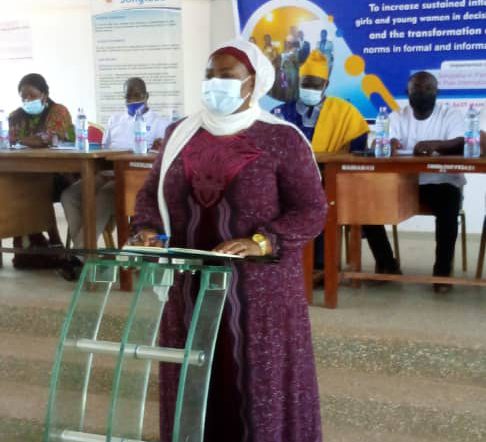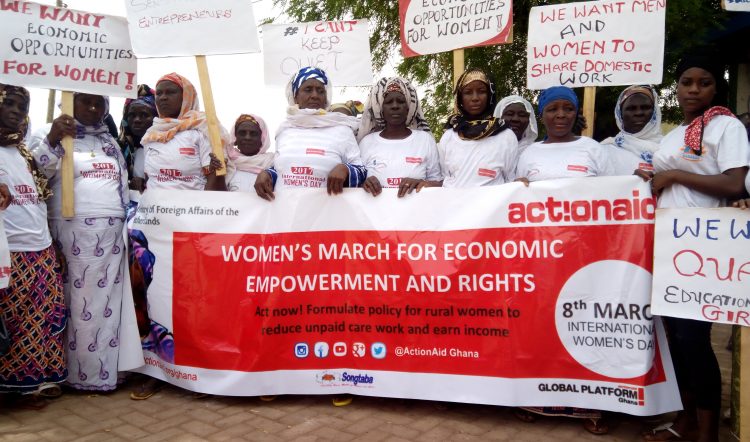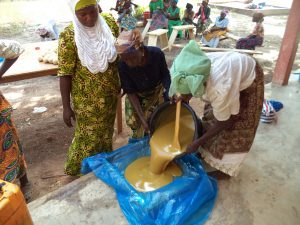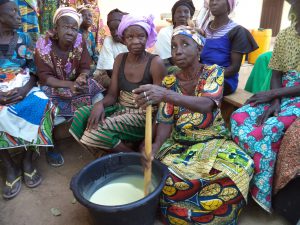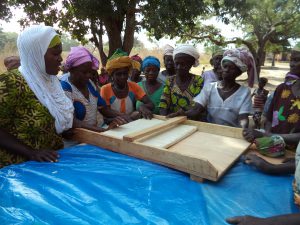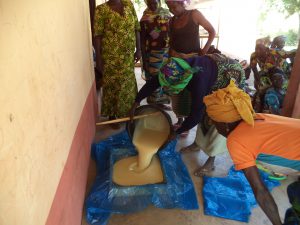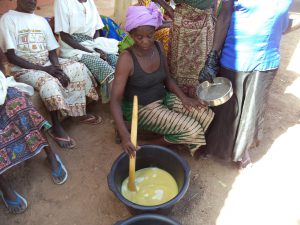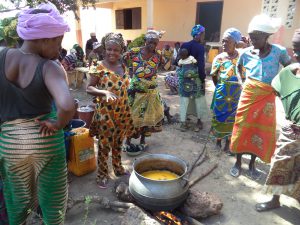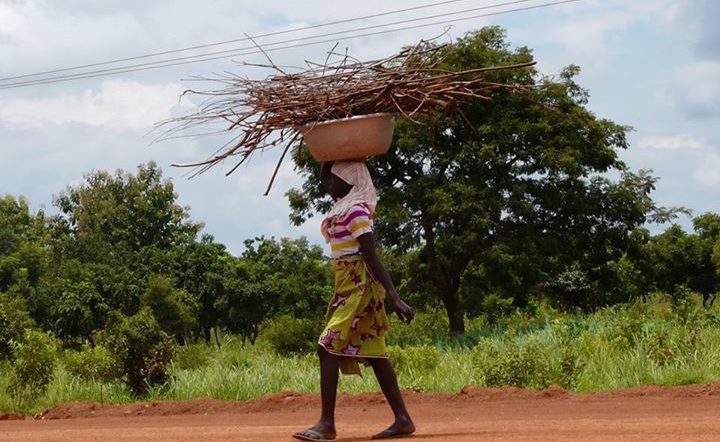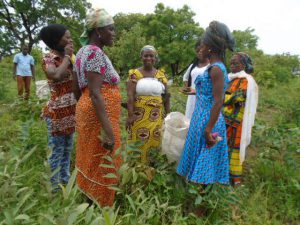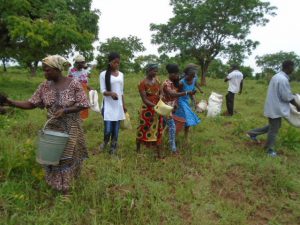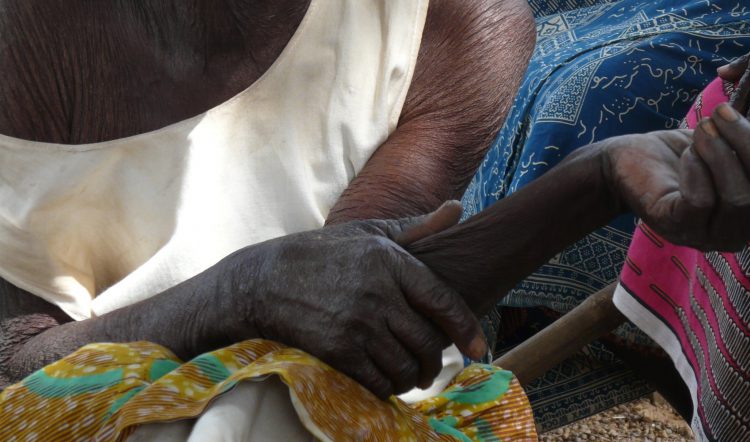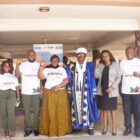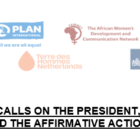funded by STAR-Ghana Foundation, Songtaba is working with district assemblies, traditional authorities, religious leaders and community, and district stakeholders to secure the safety and dignity of women who suffer dehumanizing cultural conditions including witchcraft accusation based on allegation and suspicion.
The first phase of the project worked with four district assemblies where the alleged witches’ camps are located (Yendi, Nanumba South, Gushegu, and East Mamprusi) to adopt GESI bye-laws as one of the strategies to reduce the incidence of violence against women in the districts.
The overall goal of the project: Safety and Rights of women, girls, and men accused of witchcraft protected
What is the key challenge or issue regarding gender equality and/or social inclusion you seek to address through this project?
The northern region of Ghana is playing host to now five (5) camps, mostly referred to as alleged witches camps, where mostly old women accused of witchcraft by families, relatives, and/or communities, sometimes beaten, banished, or stigmatized, run to for safety and protection. There are about 600 alleged witches living in the alleged witches camps with about 500 of their grandchildren, children, or caretakers (age 3-19) which for no fault of their have to accompany these aged women to serve as support and do some house chores.
Although the camps thus serve as safe haven for most of these women, conditions under which these women and their children or grandchildren, who care for them, live in these camps coupled with the treatment meted out to them by some camp managers (Chiefs, Priests, and Priestess) can unequivocally be described as dehumanizing.
Out of the five camps in the region, there are just about 20 serving as inmates. Of the 600 women leaving in the camps, about 90% are beyond age 60 and have on average spent a decade of their productive years in the camps. Persons accused of witchcraft and exiled into these camps lose all family support systems. Their social and economic rights are continuously violated(source: Songtaba 2014 annual report)
They also lack access to basic livelihood opportunities because of their exclusions. The common livelihood activity in the camp is cotton spinning as they do not have access to credit facilities.
The housing structure of alleged witches is at variance with normal traditional housing types. Arriving at each camp/home, the particular scene is the glaring difference between the size of the huts of other people in the communities and those of the accused persons. The huts are smaller in size with no windows for ventilation. Two or three women with children are often crowded in one small hut with old or rotten thatch roofs which allows leakage of water into the huts during rainy periods. Coupled with lack of clothing the inmates of witch camps become exposed to the vagaries of cold weather particularly during the rainy season and the harmattan (August- February) when the weather becomes cold resulting in many of them suffering and even dying from cold-related diseases, such as pneumonia.
The situation is exacerbated by the inability of alleged witches to access health care. They have no livelihood support and are unable to participate in the country’s health insurance schemes. Though such schemes do make provision for the aged amongst them they are unable to access health service due to the cost involved in transportation and their inability to secure medicines.
Unfortunately, the geographical locations of some of the camps do not allow children in these camps access to basic education. For instance, to access junior high school in the Nabulicamp in the Gushegudistirct, a child will need to walk about 18kilometres to get to the nearest school to attend. The majority of them can not access the school firstly because their parents/guardians are so poor as to meet the cost of education and also because these children, main girls, have to travel long distances to draw water and fetch firewood for their parents. It must be mentioned here that there are only two functioning boreholes which were provided by Action Aid Ghana and ADRA and the water table is very low.
The alleged witches depend largely on water from an unprotected stream located several kilometers away from the community. In the Kukuo camp in the Nanumba south, for example, the women have to descend a valley to access the OTI river for water. This is about 4 kilometers
What changes does this project seek to achieve?
The project will work to reduce the stigma and isolation that the alleged witches and their children/grandchildren face in school and communities.
It will further enhance a guaranteed safety and protection for women who are accused of witchcraft through the implementation of the enacted bylaws in the districts and the communities. Our experience with working with the alleged witches in the camps is that they fear to be reintegrated back to their communities for fear of re- accusation and their safety.
The project will also work with key traditional leaders to make pronouncements to denounce and condemn the rights violations that come with witchcraft accusations.
The project will also strengthen the capacity of the leadership of the alleged witches and the children to engage the district assemblies to respond to their needs of the provision of basic amenities such as water and food. It will work closely with the social welfare and the NHIS to get the entire inmate to benefit from these social intervention programmes. It will also work closely and align with CSO’s working for the protection of women and children to build a strong network to advocate for the implementation of policies that protect women and girls.


